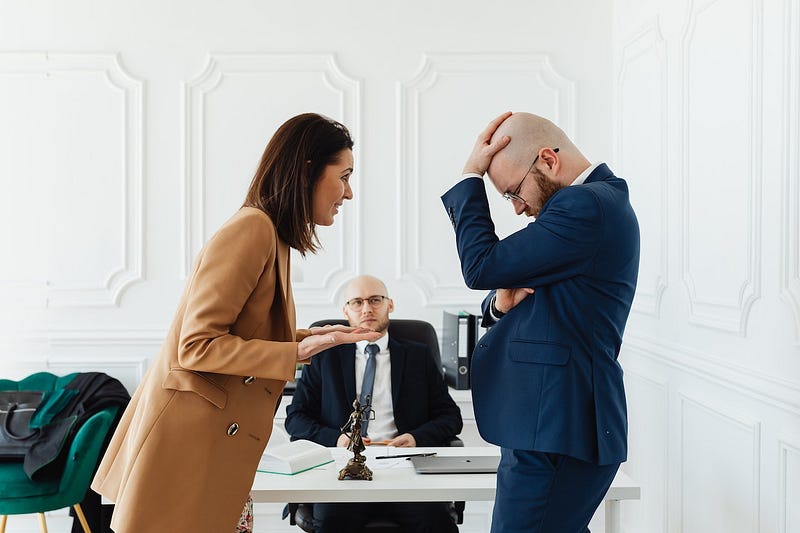# Embracing Divorce: Lessons Learned from Marriage Counseling
Written on
Chapter 1: The Decision to Leave
After eight years of marriage, I made the difficult choice to leave my husband, taking our children to my sister's home. I was resolute in my decision to not return. However, nearly a month later, he persuaded me to reconsider. He promised to attend marriage counseling.
Our first counselor was a Licensed Marriage and Family Therapist (LMFT), and we worked together for eight months. During this time, my sister shared some insightful advice.
"I think things are getting better," I remarked.
"You can't fix marital issues overnight," she replied. "It often takes considerable time to address relationship dynamics."
Big sisters possess a unique wisdom, often gained from their additional years of life experience.
Our initial counseling sessions served as a temporary fix. While we saw improvements for six years, I later realized that our counselor lacked the advanced skills to identify the deeper issues present in our relationship. It became clear that I had married someone who exhibited traits of narcissistic personality disorder and lacked empathy.
For our second round of counseling, I decided to heed my sister's words. My husband stopped attending sessions after nearly a year, leaving me to continue individually. I was deeply unhappy and unable to spur him into action. So, I turned my focus inward, aiming to foster my own growth and self-awareness, hoping it would somehow salvage our marriage.
I mistakenly believed that I could save our relationship on my own. However, I soon learned that it takes two people to sustain a partnership.
As I delved deeper into self-discovery, I noticed positive changes within myself. I started shedding unhealthy patterns, including my tendencies to please, fix, and rescue others. I was evolving, moving forward, while he remained stagnant.
Ironically, he accused me of being the one stuck in our situation, merely because I sought change and refused to revert to my former self. I firmly told him, "That won't happen." I was no longer willing to endure what was intolerable.
Our marriage counselor reminded me that I had made choices that allowed destructive behaviors, including excessive drinking, to persist. Ultimately, it was my husband who was resisting change. He expressed disbelief when I initiated divorce proceedings, underestimating my resolve. If he truly cared, he would have noticed my transformation into a more accountable individual.
I had learned to love more healthily and was emotionally outgrowing him. Years of unhappiness had been compounded by my tendency to make excuses, offer second chances, and stay in an unhealthy relationship simply because I cared too much.
While I loved my husband, I could no longer accept the way he treated me. It took extensive counseling for me to grasp my own personality, my upbringing, and the decisions that led me to choose him as my partner.
My sister's wisdom rang true.
I firmly believe in marriage counseling and its potential benefits for some couples. However, I recognize that not all marriages are alike. Just because my experience concluded with divorce doesn’t mean others will have the same fate. Many could emerge with a success story.
Although marriage counseling ultimately led to my divorce, I hold no regrets. It was the best choice I ever made.
Chapter 2: Understanding Divorce and Its Implications
The first video titled "Moving On When Your Marriage Doesn't | Therapy & Theology" provides insights into navigating the aftermath of a marriage that has ended. It emphasizes the importance of self-discovery and healing post-divorce.
Chapter 3: Letting Go of Regret
The second video, "After Divorce: Letting Go of Regret #divorcecoach," explores the process of moving forward after a divorce, highlighting the necessity of releasing past burdens to embrace new beginnings.
Section 1.1: Recognizing Patterns
In examining my journey, I realized that the same issues that plagued my marriage continued to affect my life post-divorce.
Subsection 1.1.1: The Impact of Narcissism

Section 1.2: The Role of Support Systems
Through this journey, I found that having a supportive network, like my sister, was invaluable in navigating the complexities of relationships and self-discovery.